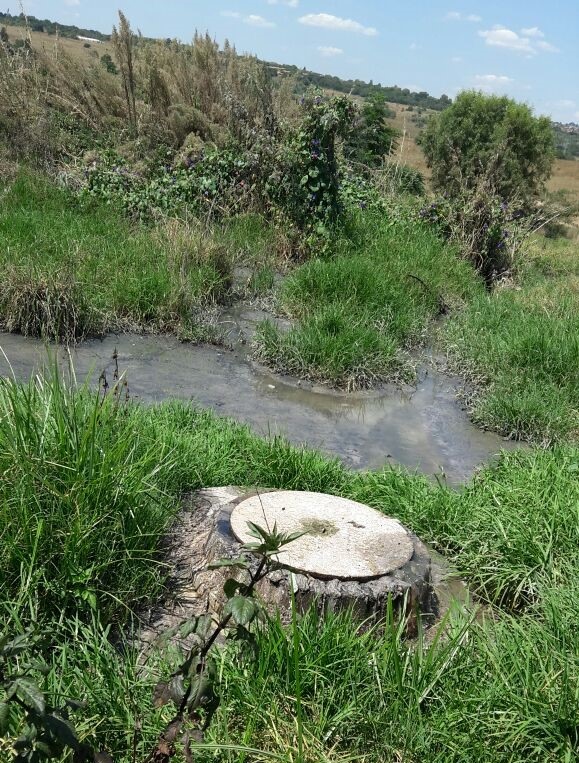
As a continuation of activities towards river health monitoring and clean-up, the IWSN Africa team marked World Water Day (22 March) by conducting a health assessment in a stream near Monash South Africa. In order to spread the word about World Water Day and associated activities, we invited Honours students from the Geography cohort in the School of Social Science to participate in the assessment.

The Stream Assessment Scoring System (SASS) – of which the MiniSaSS is a simplified version – is the standard assessment method for South Africa. The output of the assessment is an average score which is a general indicator of the quality of the water in the stream. To come up with the score the assessment uses the make-up of macro-invertebrates living in streams and is based on the sensitivity of the various animals to water quality. To facilitate the sharing of information, data obtained from each assessment can be uploaded onto an interactive Google Earth-based map.
With the assistance of the Geography cohort, the team sampled and recorded the necessary data in order to come with the average score for the stream at the sampling point (coordinates: -26.083393 °S, 27.881643 °E). After sampling the muddy, rocky and sandy habitats the average score for the stream at this point was 4.16. This score indicates that the stream is in ‘very poor condition’.

This came as no surprise, given that there are obvious sources of pollution along the stream. Nearby there was a surcharging sewerage manhole, resulting in visible contamination of the stream. The low score can also be attributed to the close proximity of residential complexes to the stream. As such, as well as the contamination from the sewage, the stream could be receiving nutrients from fertilisers and washing detergents.
Since the last river clean-up that took place on Mandela Day in 2016, stream health assessment using MiniSASS has become a regular feature of the IWSN Africa team’s work. What was special about this assessment on World Water Day was that we were able to upload our score and compare this to the score of the previous assessment. We hope that by inviting the GES students to participate in the event we have inspired them to take up postgraduate studies and tackle issues of water management in their own communities.
